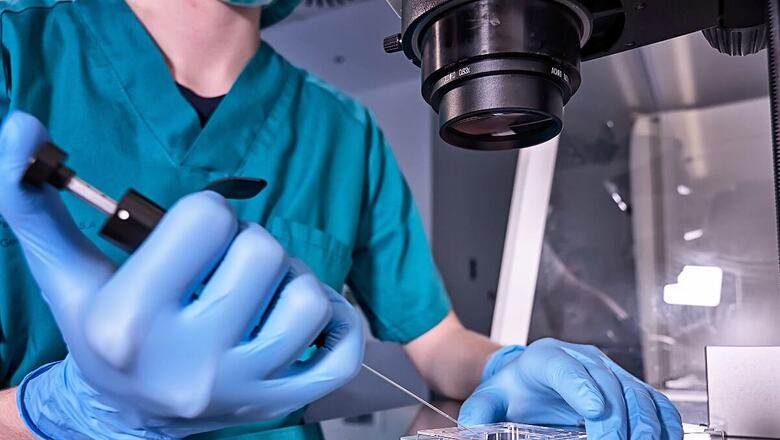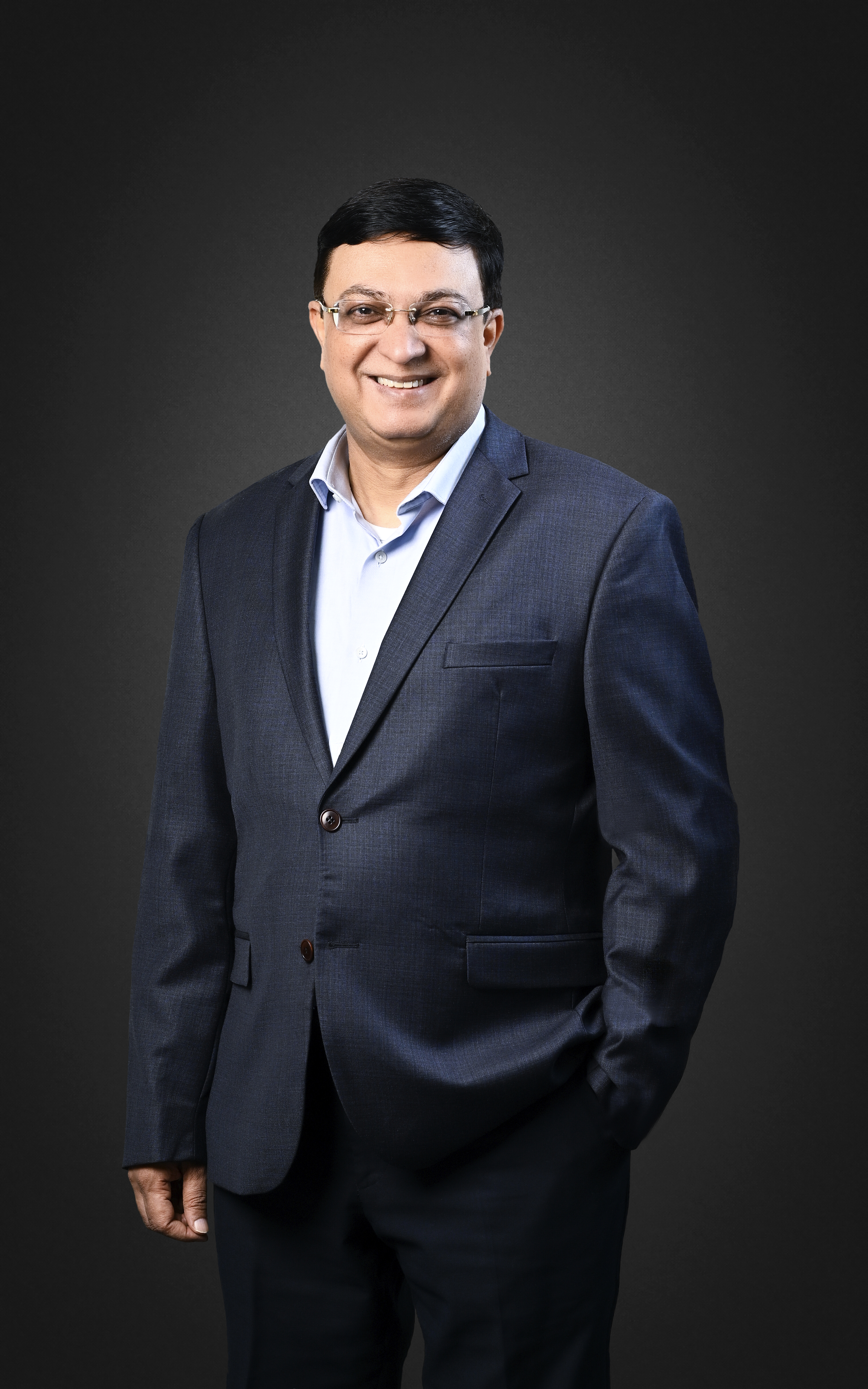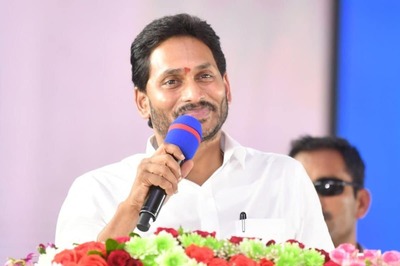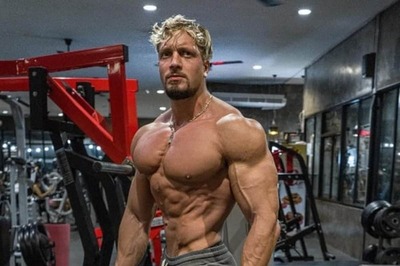How China’s Dominance in Supplying 'Human Urine' is Pushing Bharat Serums to Focus on New Technology

views
With a series of consecutive acquisitions, biopharmaceutical firm Bharat Serums and Vaccines (BSV) Limited has made it evident that it plans to go big not only in India, but globally on winning over women’s health and fertility sector.
The Mumbai-based company already offers products, especially fertility hormones used in assisted reproductive treatment (ART) and in-vitro fertilisation (IVF), that nobody else makes in India and, in fact, very few drugmakers manufacture globally.
By next year, if everything goes as per the plan, BSV may become the “only company” in the world to provide all top fertility hormones in recombinant form. The recombinant substances are made in the laboratory instead of using natural resources as raw materials.
In BSV’s case, three critical raw materials are human blood, horse serum and human urine.
“We are working on moving our products to the recombinant platform. We manage to get the first two (human blood and horse serum) but the biggest source of ‘human urine’ is China,” Sanjiv Navangul, managing director and chief executive officer (CEO), Bharat Serums and Vaccines, told News18.com in an exclusive interaction.
Why China Dominates the Market on Human Urine?
“One needs X amount of population to source urine. Secondly, the protein (in urine) is very fragile, so the colder the climate, the more stable the urine can be until converted into a different form.”
“Hence, you can only source human urine from a country where will you find a huge population, where it is easily collectable at a lesser cost and where you have a colder climate,” Navangul said.
While there are some collection centres in The Netherlands and Argentina, they are very small in terms of providing the required quantity to BSV.

“Hence, we are dependent on China,” Navangul said, adding that this “huge dependence” has led the company to shift its focus to recombinant technology.
“We thought if we are so strong in manufacturing via recombinant technology, then why do we need human urine as a natural source?”
To put things into perspective, in biopharma too, India is dependent on Chinese raw material imports similar to the dependence on chemical active pharmaceutical ingredients (APIs) in the pharmaceutical industry. India imports more than 70% of its API requirements from China for manufacturing drugs.
However, in bio-pharma, BSV may give India another choice.
“Can we not convert to the recombinant and then make it all cell lines? This way we are more self-reliant. The government is also encouraging our efforts and work.”
With Recombinant, BSV Plans to Lead Global Market
Using recombinant technology, the company aims to dominate the world in the segment of fertility hormones.
“There are five big fertility hormones. We already have the recombinant version for two of them and we are working on the other three,” he said, adding that “our idea is to make all five forms of fertility hormones in recombinant cell lines that are used in ART and IVF.”
Germany-based Merck Serono, US-based MSD and Swiss-headquartered Ferring are the three big competitors for BSV globally.
“None of these three have all hormones in a recombinant form. They have either one or two. We will be the only one to provide all five in a recombinant form if by next year, are able to build those cell lines.”
“In fact, we will become the only company in the world to have all five in the cell line… it is not again an easy thing to do for many Indian companies.”
The Growth Trajectory of BSV
In 2019, global private equity investor Advent International picked up a majority stake in BSV which was founded in 1971 in Mumbai with its research and manufacturing focussed on biotech and biological products.
In February 2020, Navangul, former MD of Janssen India – a pharma company under Johnson and Johnson – took charge.
Navangul believes that “BSV is amongst the very, very rare Indian companies that operate like a multinational.”
“Unlike most other companies who work through distributors in other countries and sell, we work through our own people.”
Sharing an example, he said, “In Malaysia, we have 24 people, whereas we have around 100 people in Africa.”
Navangul, who was also the managing director of pharma giant MSD’s Phillipines-based business, believes in “putting own people is a better way to grow the business and make it more sustainable”.
It seems to be working well in favour of the firm as it managed to record 25% growth year-on-year for the last two years. “We are among the top 10 bio-pharma companies. We always say that we are the best biotech company around.”
“We have seen tremendous growth over the last three years. We have doubled revenue in the last two years,” he added.
The company has three revenue streams – domestic turnover, international turnover and the revenue from its US FDA-approved plant in Germany for making active pharmaceutical ingredients (APIs).
“We supply to the US, Japan, and European Union countries,” Navangul said. “Currently, 60% of our revenues come from the domestic market and 40% from the international market.”
Many Firsts to BSV’s Credit
The company manufactures “anti-thymocyte globulin” which is used while doing any major organ transplant or given to a patient with aplastic anaemia where the need is to suppress the body’s immunity substantially for drugs to work well.
Apart from BSV, US pharma giant Pfizer is the only manufacturer in the world.
“Now, Pfizer doesn’t supply to India anymore but we make enough to take care of whatever is the need of this country.”
There is another form of the same immunosuppressant “ATG anti thymocyte” which is only manufactured by French major Sanofi. BSV is pulling out all the stops to manufacture the same.
“We are working very hard since we know the technology, and we are very hopeful that in some time we would be able to make the same. So you will have again two suppliers in the world,” Navangul said.
Most significant in BSV’s kitty of products is Anti-Rho (D) immunoglobulin product which is the world’s first product to assist safe deliveries among Rh-negative mothers and new-borns with patents in India, the US, Europe, Australia and Canada.
The product is given during pregnancy if a mother is Rh-negative and the baby is Rh-positive as the contradiction can be harmful to both.
It is also the first company from India ever to get a non-proprietary INN from the World Health Organisation (WHO).
What Next?
The company claims that it is the largest women’s health company and it aims to capture all types of medical conditions of women as its first target.
“We have built our portfolio accordingly. We have made acquisitions to broaden our portfolio in such a way that we focus on women’s health. So that’s probably the big part of the story,” Navangul said.
The second big area for BSV is “critical care medicines”.
“We want to build more strength. For example, we are exploring what are the more difficult-to-treat conditions in infections. It’s very early-stage thinking but we are exploring if we can use our antibody platform to create antibodies and get those infections treated? That’s something that we are working on,” he added.
“In short, we are working towards gaining recognition for an Indian company that is an innovator. Our ambition is that we grow three times in size in five years from 2020. We are currently on track and have now reached twice our size.”




















Comments
0 comment